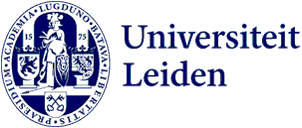
Political scientist Juan Masullo awarded Elise Mathilde Fund/LUF grant for research on public attitudes towards the mafia
Juan Masullo (Leiden University Institute of Political Science) receives a grant from the Elise Mathilde Fund/Leiden University Fund to conduct his research project ‘Forging an Anti-Mafia Culture: Observational and Experimental Evidence from Italy’. Masullo aims to find out what ordinary Italians think of organized crime and to generate insights as to how to foster an anti-mafia culture.
Devastating consequences
Mafia organizations continue to thrive worldwide. Despite their attractiveness in popular culture, the consequences for ordinary civilians are devastating. Organized crime does affect societies in many harmful ways. Just think of shop owners forced to pay large sums of extortion money, youths being recruited as hitmen, and innocent civilians getting killed in mafia wars across the world.
Social and cultural acceptance
In response, various grassroots associations have emerged to resist criminal activity, create awareness of the costs imposed by the mafia, and promote an anti-mafia culture. This, in turn, could help to curtail the mafia’s hold on society. As is well established, social and cultural acceptance is one of the crucial factors explaining the mafia’s survival and success.
Impact of anti-mafia campaigns
Less is known, however, about what ordinary people actually think of mafia organizations. Also, little research has been done on the impact of anti-mafia campaigns. Political scientist Juan Masullo (Leiden University Institute of Political Science) will address both questions in his research project Forging an Anti-Mafia Culture: Observational and Experimental Evidence from Italy. As prime investigator Masullo will be joined by three research assistants (both in Leiden and in Palermo, Italy). The project will span two years (up until September 2024).
Testing assumptions about public attitudes
Masullo & Co. will conduct a survey among a large sample of Italian residents to map public attitudes towards the mafia and identify what is behind these attitudes. Additionally, the project will yield data on what type of information can help shape citizens’ awareness and opinion of organized crime. This will be a good test of the implicit and explicit assumptions that have thus far dominated the public debate as well as the scientific literature.
Addiopizzo
A novel field experiment will generate insights as to how an anti-mafia culture can be promoted. The project provides for an assessment of the impact of an existing anti-mafia awareness initiative in a randomized and controlled setting. Masullo will join forces with Addiopizzo, a local grassroots movement in Sicily. Addiopizzo emerged in 2004 in Palermo to resist extortion by the mafia (the name of the movement means ‘Goodbye Extortion’). Besides supporting hundreds of businesses that refuse to pay protection money, its members organize ‘anti-mafia tours’.
Palermo students
On these tours, local visitors and tourists deepen their knowledge about the mafia phenomenon beyond clichés and myths and visit symbolic locations, such as memorials dedicated to victims of mafia violence. Through the University of Palermo, Masullo will recruit last-year high school and first-year university students from Sicily’s capitol and establish whether and how their attitude towards the mafia is affected by being exposed to Adiopizzo’s educational efforts.
Lessons for future initiatives
To this end, Masullo & Co. will randomly assign the Palermo students into two groups. A ‘treatment group’ will follow a specially designed tour with Addiopizzo and then take a post-treatment survey, as well as a series of follow-up surveys. The ‘control group’ will only take the post-treatment survey, allowing the researchers to establish the impact of the anti-mafia tour and to draw lessons for future initiatives to uproot the interwovenness of organized crime and society.
Elise Mathilde Fund
The Elise Mathilde Fund was established in 1941 by the van Beuningen-Brain family. It supports non-profit institutions striving towards social, cultural or idealistic goals and targets projects that improve societal cohesion and involve volunteers. The fund is affiliated with the Leiden University Fund (LUF) and in 2016 provided a substantial donation to facilitate academic projects of Leiden University.
